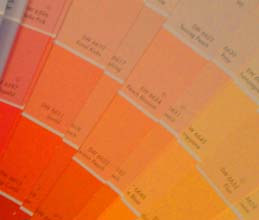 Image ©2011 Brian Triber. |
Central conflict, character traits, setting, theme: which comes first? |
I recently got caught up in a rut. It was one of those ruts that seemed to double-back upon itself until I wasn’t just running in circles — I was corkscrewing myself into the abyss. The subject of this exercise in double-thinking self-annoyance was theme.
Before launching into an explanation, let me state that what I’m putting forth is my experience. All writers have varying approaches that work for them, but won’t work for others. So, milage on this road may vary. Having said that, allow me to explain how theme sent me down the rabbit hole.
This is the kind of thing that most everyone has learned about in English class, that theme is the backbone of story, that plot is written around it. But somewhere along the line I was misled. I had been taught that character came first (something I still don’t necessarily believe), and that plot came from the process of character discovery, and theme was a byproduct that was identified after the fact. After the first draft, identifying the theme was key for the rewrite to determine how to tweak the story to reinforce the theme.
Now, though, I’m not so sure. I’m finding that theme may be key to writing the first draft. My best ideas tend to come to me plot-first. Many writers will say that’s putting the cart before the horses, but having been weaned on science fiction, it’s nearly impossible to develop a compelling plot line from character when you’re trying to describe a vision of the future, or some unknown technology that suggests a particular conflict. That’s why much classic Sci-Fi tends to be societal and philosophical in nature with, it can be argued, fairly flat characterization.
My answer to that is what some might call “shoehorning” characters into a plot. I don’t consider it shoehorning, however. The key to how my characters work is that I don’t begin writing the story until I’ve had a chance to develop the characters into full emotional and motivational beings. The question is, what kind of character works in a given plot? Whatever character I develop has to have a main character trait that illuminates the central conflict of the plot. If I’m working on a plot about a long space journey, I’ll want to consider giving my main character claustrophobia. For a story that originates on a dairy farm, the main character should have lactose intolerance or a dairy allergy — assuming that the central conflict is about the farm.
It seems to me, however, that theme has to come first. In developing a story, a related theme should be found to encapsulate the central conflict. So, for instance, if my story had to do with time travel, and my protagonist’s main motivation was to prevent an event from occurring, a theme to match this well would be “we are amalgams of our past experience.” Now, the character can be further developed to focus on the theme: a man returns to the past to stop his childhood self from quitting the school band, because in the future he would be able to woo a desired spouse through music.
Now the theme is in place, the central conflict, the main personality trait of the protagonist has been discovered, and the plot begins to unfold. Setting is the missing piece, and that becomes effortless now that we know the story has to do with amalgams of past experience, so the central conflict, being internal, can occur in the instrument storage room among ancient dusty cases and shelves of sheet music for the characters to reflect upon.
So, I’ve managed to emerge from this rabbit-hole with a little more direction. I have the theme for my current project, the central conflict to reinforce it, and the plot to support it. The characters are sketched out, and can now be filled out a bit more, with motivation and internal conflict that mirror and echo the theme. Now, if I can figure out what font to use…
